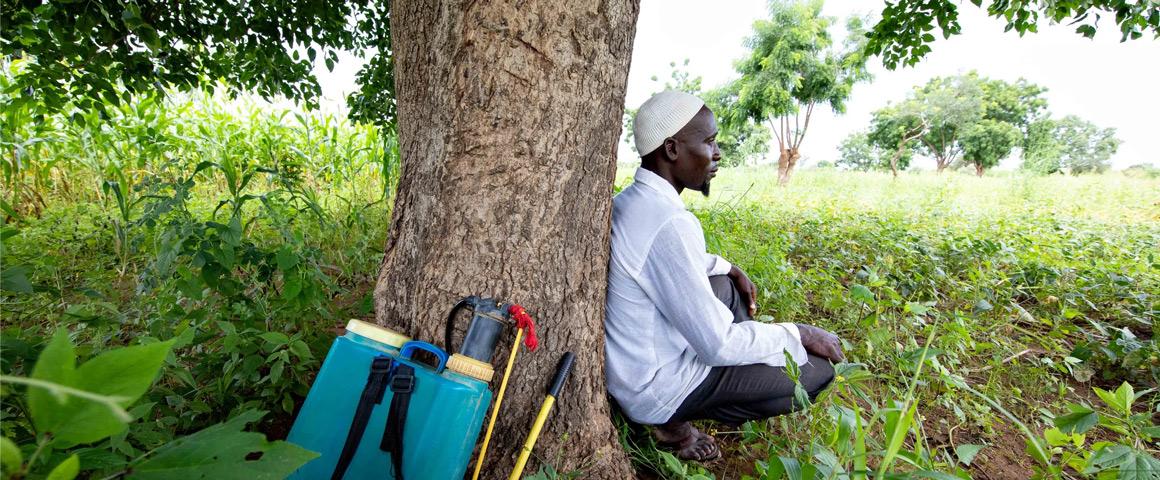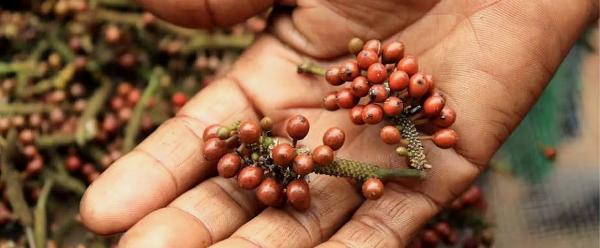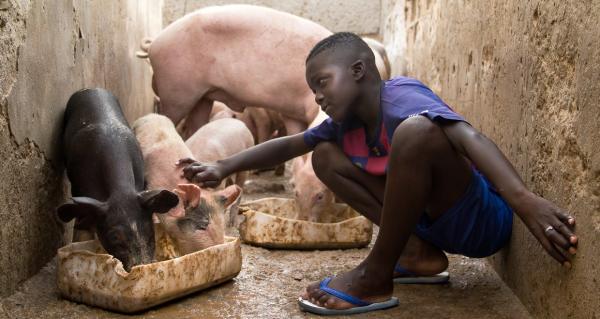Science at work 4 March 2024
- Home
- CIRAD news
- News
- PRETAG is banking on co-building to cut pesticide use in the tropics
PRETAG | Banking on co-building to cut pesticide use in the tropics

Synthetic pesticide use has increased considerably over the past two decades in tropical countries © R. Belmin, CIRAD
Pesticide use worldwide increased substantially between 1990 and 2018, from 1.7 to 2.7 million tonnes (FAO, 2020). Tropical countries were no exception, and have significantly upped their use over the past two decades. Moreover, in many such countries, access to information about the risks of pesticide use is often patchy, while regulations are either inadequate or difficult to apply.
In response, scientists from 14 research units in Montpellier - at CIRAD, IRD, Institut Agro Montpellier, INRAE and CNRS - have been working with stakeholders involved in production, processing and marketing, and with policymakers, within the PRETAG (Pesticide Reduction for Tropical Agricultures) initiative.
The aim is to pool knowledge of synthetic pesticide use in tropical farming systems and foster the development of alternatives.
"The initiative fits into the agroecological transition, a field in which research units in Montpellier are heavily involved", says François X. Côte, Head of Tropical Supply Chains at CIRAD and coordinator of the initiative. "It brings together an interdisciplinary scientific community and aims to establish direct links between that community and drivers of change, to rapidly develop alternatives that can effectively be rolled out in the field."
The initiative is coordinated by CIRAD, with the support and participation of Agropolis Fondation and the FARM Foundation.
In addition to providing financial support, the FARM Foundation was keen to be involved in the project, by helping to bring drivers of change on board. "Within the initiative, we are working to consult representatives of every stage of value chains, people from the private sector with innovative solutions to offer, and donors, to fuel advocacy operations resulting from our work", Catherine Migault, the foundation's Director General, adds.
Five "value chain" case studies to co-build change
For Océane Trevennec from Agropolis Fondation, "in view of the health and biodiversity preservation stakes, it is vital to step up research efforts to determine the technical, social, political and economic obstacles to and levers for a rapid reduction in synthetic pesticide use in tropical countries".
The initiative is looking at five case studies characteristic of local and export-oriented value chains, chosen for their extensive experience of reducing pesticide use:
- Periurban market gardening in West Africa
- Cocoa growing in West Africa
- Rice growing in Southeast Asia
- Coffee growing in Latin America and Asia
- Dessert banana production in Africa and the West Indies.
During the project, all the stakeholders in value chains will be involved in co-building the changes needed to reduce pesticide use. What is rare is that the analyses conducted will take account of the economic cost generated by changes in practices.
Through each case study, PRETAG also intends to support existing projects, consortiums and initiatives: the ECOFFEE R&D initiative for coffee and the MARIGO project for market gardening, the French Sustainable Cocoa Initiative (IFCD) and the equivalent initiative for banana (IFBD), and the national conservation agriculture and sustainable intensification consortium (CASIC) for rice.
Generic levers on a territory and public policy level
The initiative will also adopt a transverse, generic approach to identify levers on a territory scale and standards and regulations in terms of public policy.
Lastly, it will serve to aggregate a quantified dataset on pesticide use, including herbicides, worldwide and for each crop.
Building a global alliance to reduce synthetic pesticide use
After the initial two-year phase, the initiative aims to work with stakeholders in the global South to build a global alliance to reduce synthetic pesticide use in tropical farming systems. The alliance will serve to exchange experiences and knowledge and provide training in pesticide reduction.


























